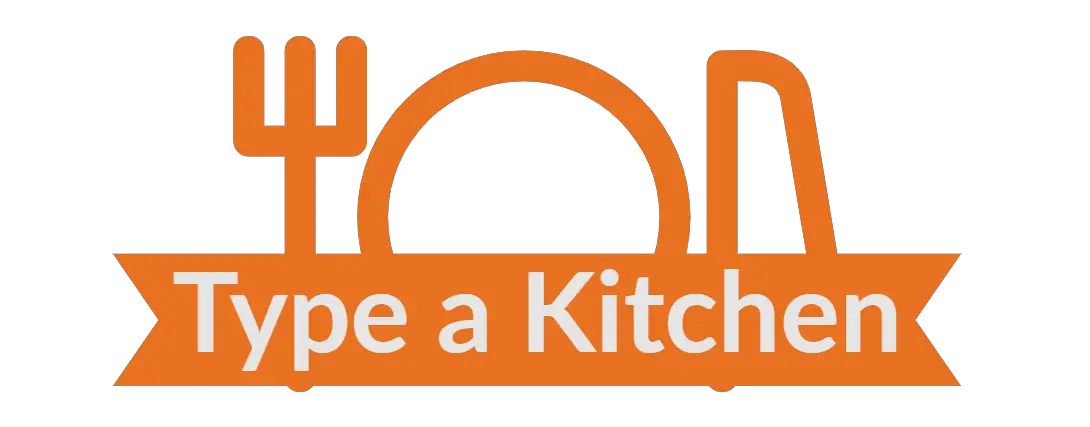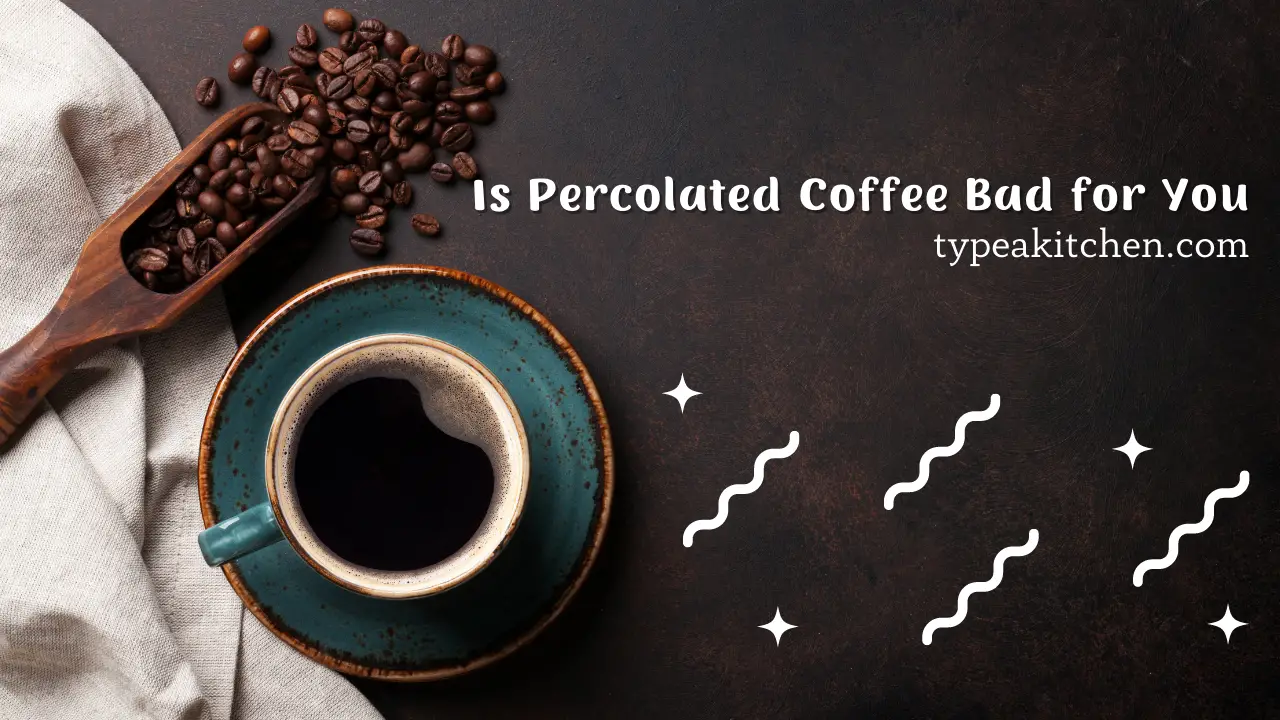Coffee that has been through a percolator produces a beverage that is far more potent than coffee that has been filtered.
Coffee is one of the beverages that is consumed all over the world at an extremely high rate. It is a source of caffeine, which is known to have both positive and negative impacts on the health of humans. Percolating, often known as pouring hot water through roasted coffee beans, is the method through which coffee is produced.
Is Percolated Coffee Bad for You?
Is coffee that has been percolated unhealthy for you? The answer does not come down to a straightforward yes or no. It is true that coffee that has been put through a percolator contains a higher concentration of caffeine than other types of coffee.
The response, however, cannot be reduced to a straightforward yes or no when discussing the positive and negative effects on your health.
Coffee produced with a percolator often has almost twice as much caffeine as coffee brewed using a regular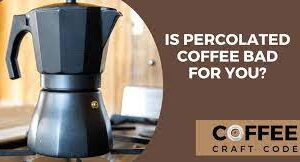
However, drinking an excessive amount of caffeine on a regular basis may be detrimental to your health. Therefore, the issue that should really be asked is “How much sugar and cream am I allowed to put in my cup of percolated coffee?”
The Caffeine Content of Percolated Coffee
Because it retains some of the particles that are filtered out during the brewing process, such as caffeine and carbon dioxide, coffee that has been percolated has a higher caffeine content than coffee that has been filtered. According to the findings of a study conducted by the United States Department of Agriculture (USDA), the majority of ground coffees include roughly 12 percent (by mass) of dissolved solids, of which approximately 97 percent is caffeine.
The impact that this has on your health is inversely proportional to the amount of coffee that you consume. According to the Mayo Clinic, healthy persons do not experience any substantial adverse effects from drinking up to three cups of coffee per day (12-ounce size).
However, consuming more than five or six cups of coffee each day has been shown to increase the risk of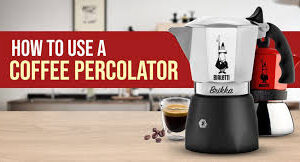
Water Temperature
Percolated coffee, in addition to having a higher concentration of caffeine, also has contaminants that are produced as a byproduct of the percolation process. When this happens, hot water is passed through the ground coffee beans, which might leave behind carcinogenic contaminants. A physician who works at the Pennington Biomedical Research Center at Louisiana State University named Frank Greenway explains that higher temperatures increase the risk of lipid peroxidation and subsequent plasma membrane lipid damage. This may explain why boiled coffee is worse for your cardiovascular health than filtered coffee. Nevertheless, the amount of time that the water spends in contact with the soil is far more significant than the water’s temperature. Consequently, any method of brewing is OK so long as you let your brew steep for fewer than four minutes (to prevent excessive extraction), and as long as you prefer it on the robust side.
Is Percolated Coffee Better Than Filtered Coffee?
Consuming coffee that has been filtered through a percolator also has its merits. Due to the greater caffeine concentration of percolated coffee, you can get the same positive effects of caffeine on your health by drinking only one cup of coffee rather than needing to drink multiple cups of regular coffee.
When compared to making coffee with a drip coffee maker, it is also less expensive because you will require less ground coffee for each cup.
Coffee that has been prepared with a percolator retains more of the vital minerals zinc, magnesium,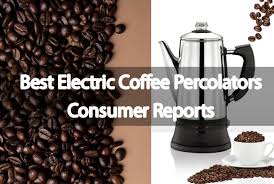
Therefore, whether or not drinking coffee made using a percolator is healthy for you depends on how much you are ready to give up in exchange for all of the health benefits associated with minerals and caffeine. Enjoy your coffee with a lot of cream and sugar in it if you have the means to do so.
Is percolated coffee better than drip coffee?
The use of drip coffee makers or coffee makers with filters is the most typical approach of preparing coffee. However, there are several alternative processes that have been adopted by the coffee industry. These include percolation and vacuum brewing, to name a couple of examples.
Percolators are distinct from drip brewers in that they incorporate the coffee grounds into the brewing process, whereas drip brewers remove the grounds after the coffee has been brewed. Despite the similarities between these two approaches to preparing coffee, percolators are preferred.
On the other hand, drip brewers make coffee by directing hot water through a filter that is loaded with ground coffee before pouring the brewed beverage into a cup or a pot. Because it infuses each cup with all of the important oils and flavors that are contained in ground beans, percolated coffee is distinguished from coffee that is made using the drip method by this characteristic.
Because the water is constantly moving through the grounds of percolated coffee, the resulting beverage is frequently described as having a more robust flavor and a slightly bitter aftertaste. This indicates that it has a higher caffeine concentration than coffee which has been made using a drip method.
While there are a number of advantages to drinking coffee that has been made with a percolator rather than a drip brewer, there are also a number of disadvantages associated with the composition of both types of coffee.
Coffee that has been brewed using the drip method is superior in terms of the number of beneficial minerals and antioxidants that it is able to absorb, whereas coffee that has been percolated has a higher caffeine concentration and, as a result, poses a greater risk of adverse effects if it is consumed in excessive quantities.
Both kinds of coffee have their own drawbacks, but what really important is the flavor that you enjoy, which will differ from person to person due to the differences in how people’s taste buds are wired.
No matter how you take your coffee, the most essential thing is to take care of your health and make sure you don’t overdo it by consuming excessive amounts of it or skipping out on getting enough exercise.
Recommendations:
- The optimum method for preparing coffee is to use a filter, although you can get by with any method that does not include boiling the beans.
- The whole steeping duration should not exceed four minutes.
- It doesn’t matter whatever approach you take, as long as you enjoy strong coffee and don’t skimp on getting some exercise every day.
- Both kinds of coffee have their own drawbacks, but what really important is the flavor that you favor which will differ from person to person due to differences in the taste buds that each individual possesses.
- When shopping for a coffeepot, you should look for one that has a filter built into it.
- The optimum method for preparing coffee is to use a filter, although you can get by with any method that does not include boiling the beans.
- The recommended daily limit for caffeine consumption is no more than 400 mg.
- Maintaining your health should be your top priority, regardless of how you take your coffee, as long as you don’t overindulge in it and make a habit of minimizing your time spent engaging in physical activity.
What is the healthiest way to drink coffee?
The manner in which you brew your coffee can have a variety of effects on the health benefits that you receive from drinking coffee.
The United States Department of Agriculture (USDA) reports that coffee contains more antioxidants than any other fruit or vegetable, which indicates that drinking coffee has a wide range of positive effects on your body’s overall health.
Coffee beans contain a number of different substances, including caffeine and diterpenes, which, when ingested in moderation, have the potential to enhance cognitive performance and speed up the metabolic rate.
According to the National Heart, Lung, and Blood Institute, drinking two to four cups of coffee per day is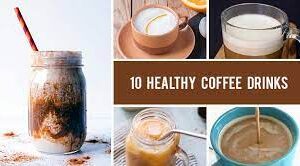
You might also cut your calorie consumption by adding milk with a lower percentage of fat.
Because drinking more than a specific amount of coffee might make you irritable and give you headaches, you should limit your daily intake of coffee to no more than two cups, which is equivalent to 400 milligrams of caffeine.
The United States Department of Agriculture (USDA) suggests drinking filtered coffee rather than percolated coffee because filtered coffee has fewer acids and other potentially harmful substances. These acids and substances can cause irritation in the esophagus, stomach, intestines, and kidneys over the course of time. It is essential to understand that bringing ground coffee beans to a boil at high temperatures for a lengthy period of time transforms them into a substance that is more carcinogenic than brewed coffee using a drip machine. Filtered coffee is the optimal way to consume coffee because it contains less caffeine and is therefore better for your health.
How Does an Electric Percolator Know When to Stop?
When you are setting up the coffee maker, check to see that each of the chambers has the appropriate amount of water poured into it. When the carafe is placed onto the heating element, there should be no risk of it spilling over.
A pressure release valve is often located on the top of the lid of a percolator. The purpose of this valve is to prevent boiling water from escaping the device and splashing all over the kitchen counters.
Some percolators include an extra tube sprout that allows excess steam to hiss out gently into a location that is distinct from where it serves the coffee. This is done to prevent incidents such as scalded lips or burnt fingers. This not only helps eliminate carbon dioxide during the brewing process, but it also helps avoid high-pressure buildups inside the percolator, which would halt the brewing process entirely if they occurred.
The design of the percolator prevents it from being turned on after the steam and water have been released through this valve.
How do I Prepare a Dark Roast Coffee?
Using a French press is the most efficient method for preparing dark roast coffee because it is quicker than using a drip coffee maker and does not involve the use of paper filters, which would cause you to waste money over time as well as create damage to the environment due to excessive waste.
Coffee prepared using a drip brewer contains approximately 142 milligrams of caffeine per cup, while coffee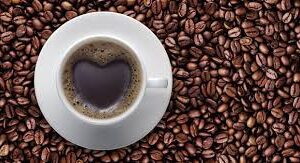
However, this also implies that they run the danger of acquiring health problems such as hypertension as a result of consuming an excessive amount of coffee.
Coffee prepared with a light roast has approximately 131 milligrams of caffeine per cup, whereas coffee prepared using a French press has approximately 247 milligrams of caffeine per cup. Since the beans’ chemical components are degraded throughout the roasting process, the finished product will have a higher caffeine content. This effect is proportional to the degree of roasting. People who wish to drink less caffeine without sacrificing taste and flavor profile can go for dark roast coffee rather than light or medium roast because it has a higher caffeine content than the other two.
Conclusion:
Even while percolated coffee contains a higher concentration of caffeine, this does not mean that it is preferable because an excessive amount of caffeine can be dangerous.
In conclusion, then… The answer is no, drinking percolated coffee is not unhealthy as long as it is prepared with decaffeinated beans or brewed in a manner that yields a mellow brew with a minimal amount of acid content. However, if you drink it in large quantities, it might be harmful to your health. The idea is to use moderation.
you can also check our blogs related to Microwave.
